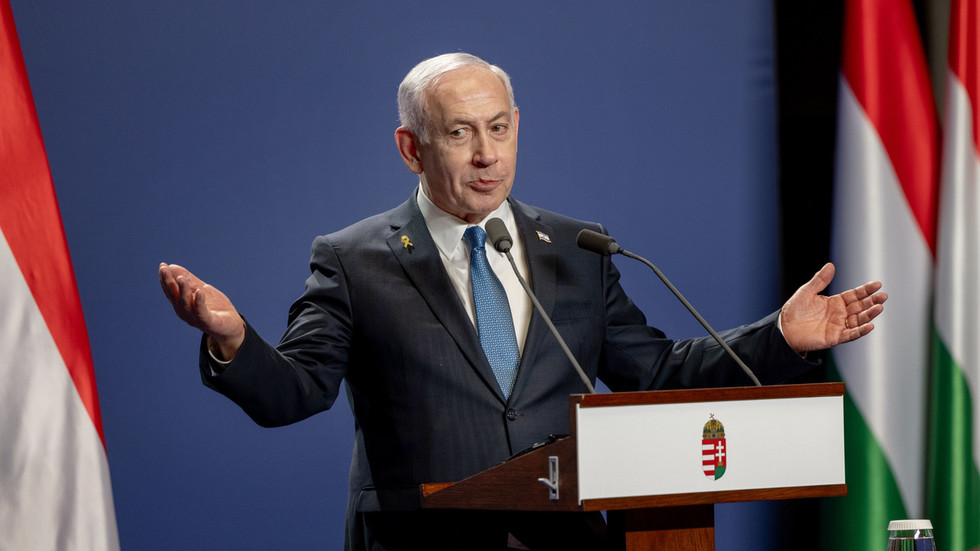"Turkey's political future is germinating in the cells of this prison," said Cemil Tugay, the mayor of Izmir, a city in western Turkey, after visiting the deposed mayor of Istanbul, Ekrem Imamoglu, and other political prisoners in Silivri earlier this week.
The Marmara Penitentiaries Campus, as it is now officially known, is located in the municipality of Silivri, around 70 kilometers (43 miles) from the center of Istanbul.
Originally designed to be Turkey's largest jail, the Silivri prison opened in 2008 and has since become Europe's largest high-security penal facility. It was renamed in 2022. Human rights organizations refer to it as an "internment camp" for opposition members, dissidents and Kurds.
According to official data, the "campus" covers an area of more than a square kilometer (0.39 square miles) and comprises 10 correctional institutions, a hospital, and several courtrooms. There are 500 residential units, as well as an elementary school, a kindergarten, a shopping center, and other facilities for staff.
Initially devised for 11,000 prisoners, according to a human rights inquiry in the Turkish parliament, by the end of 2019, it was sometimes housing up to 23,000 at the same time, indicating significant overcrowding.
The prison has become a symbol of repression in Turkey, particularly since the number of political arrests has increased. Considering its size and the diversity of its inmates, who range from mafia bosses to opposition leaders, the jail also plays a role in Turkish politics.
 The arrest of Istanbul Mayor Ekrem Imamoglu has triggered mass protests in TurkeyImage: Kemal Aslan/Depo Photos/abaca/picture alliance
The arrest of Istanbul Mayor Ekrem Imamoglu has triggered mass protests in TurkeyImage: Kemal Aslan/Depo Photos/abaca/picture allianceFrom sunflower fields to torture
The prison has also fundamentally changed the image of Silivri, which was traditionally known for its fertile soil and sunflower fields. Its picturesque 30-kilometer-long coastline and liberal atmosphere attracted many tourists on a short break from Istanbul.
Amid the detention of well-known intellectuals, government critics and opposition leaders, Silivri has drawn national and international attention. The recent imprisonment of Imamoglu has put a spotlight on it once again.
The deposed Istanbul mayor is by no means the only prominent prisoner in Silivri: the renowned human rights activist and philanthropist Osman Kavala has been held there since 2017, after being charged with attempting to overthrow the government in conjunction with anti-government protests in 2013.
Other prominent inmates include Umit Ozdag, the chairman of the ultranationalist Victory Party, Can Atalay, a lawmaker from the left-wing Workers' Party of Turkey (TIP), the academic and urban planner Tayfun Kahraman, the filmmaker Cigdem Mater, and the talent manager Ayse Barim.
In the past, foreign citizens, such as the German human rights activist Peter Steudtner and the German-Turkish journalist Deniz Yucel, have also been detained there.
Adil Demirci, a German-Turkish social worker from Cologne, was imprisoned there for 10 months, later writing about his experiences in a book whose title translates as "Cell B-28." He described the oppressive atmosphere of the prison in an interview with DW: "I was initially housed in a single cell in Block 9 and could only speak to the neighboring inmates through the door. That was the only way." He added that he was later moved to a cell with two other prisoners.
Block 9 is known for only housing political prisoners. The Turkish rights group Civil Society in the Prison System Association (CISST) has reported on it in the past.
In 2022, the residents and mayor of Silivri requested that the name of the prison be changed. It has since been called the Marmara Penitentiaries Campus.
 The Berlin-based journalist Can Dündar curated an exhibition about the jail in SilivriImage: Ute Langkafel MAIFOTO
The Berlin-based journalist Can Dündar curated an exhibition about the jail in SilivriImage: Ute Langkafel MAIFOTOSolitary confinement akin to torture
The forensic scientist Sebnem Korur Fincanci, a former president of the Human Rights Foundation of Turkey (HRFT) and winner of the Hessian Peace Prize, is profoundly concerned about the conditions in high-security jails in Turkey. She said that the situation in Silivri is worrying because prisoners are held in solitary confinement with little contact to others. She noted that it is a form of torture to deprive people of basic social interaction.
She explained that many inmates have complained of having barely any sunlight in their cells, and that the concrete blocks are very cold in the winter months. "These conditions exacerbate significantly an already stressful situation," she added.
According to the CISST, Turkish prisons are massively overcrowded. In 2022, there were over 300,000 prisoners in 265 closed prisons. Only Russia had more.
Fincanci pointed out that many prisons had already been 30% over capacity before the recent waves of arrests. This has led to serious issues, such as insufficient space for inmates to sleep, an inadequate water supply, medication shortages, and poor hygiene. "At times, the inmates have to sleep in shifts," she said.
Istanbul protesters: 'We all came here for a better future'
Political prisoners from opposing camps deliberately held together
The HRFT also noted that there is a disconcerting trend: Lawyers have reported that their clients are being deliberately jailed with people from opposing political camps. Fincanci said that this was worryingly reminiscent of the conditions during and in the aftermath of the 1980 military coup.
In Silivri, she explained, left-wing and liberal political prisoners are being jailed with radical Islamists. Thus, the stress of being in jail and the pressure from staff are exacerbated by tension and harassment from other prisoners. This meant that he climate of fear and mistrust compounded the already precarious situation of being a political prisoner.
This article was translated from German.

 By Deutsche Welle (World News) | Created at 2025-04-02 18:42:54 | Updated at 2025-04-03 15:17:46
21 hours ago
By Deutsche Welle (World News) | Created at 2025-04-02 18:42:54 | Updated at 2025-04-03 15:17:46
21 hours ago







